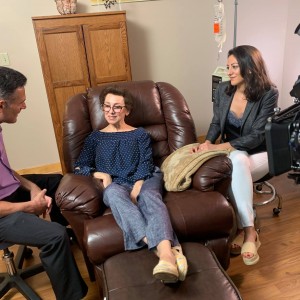
Cancer kills more than six hundred thousand people every year.
Though there have been great strides made in the fight against cancer, we are still losing the battle each year.
Cancer Affects All Kinds of People at All Ages
Even for public figures, celebrities and those who we would consider wealthy, there is no protection from the disease that confounds most experts.
Taking people like Peter Jennings, Farrah Faucet, David Bowie, Aretha Franklin, Paul Newman, Walt Disney, Dennis Hopper and countless more, in the midst of their prime, cancer does not choose only the elderly.
So many people have already died, from a disease that knows no age differences, from ten year olds, to thirty-somethings in their prime, to seniors, who were lucky enough to live a full life, before this terrible disease struck them down.
Cancer Trends
Although statistical trends are usually not directly applicable to individual patients, they are essential for governments, policy makers, health professionals, and researchers.
These statistics and trends enable us to understand the impact of cancer on the population, and to develop strategies to address the challenges that cancer poses to the society at large.
Many Patients Dying Of Cancer Try Useless Treatments
WebMD reports new research indicates that when given just one month to live, a significant number of patients still opt for aggressive and often costly interventions, despite little evidence to suggest they’ll help.
A study of just over 100,000 patients in the United States found that the urge to undergo ultimately fruitless cancer treatment “is not a rare phenomenon,” said study author Dr. Helmneh Sineshaw, of the American Cancer Society.
More than one-quarter underwent active treatment, such as surgery or chemotherapy, in the final weeks of life, said Sineshaw, director of treatment patterns and outcomes research for the cancer society.
For those affected, care planning can be very “complex.” Decisions involve a tricky interplay of doctors, patients and loved ones.
Though this is a challenging scenario for doctors and patients, oncologists have an obligation to inform their patients as best as they can about the prognosis, the goals of treatment, and the expectations for benefit and side effects from any treatment plan.
However, there is hope, from doctors like Dr. Mark Rosenberg, from the Healthy Living Group.
Dr. Rosenberg is an innovator with original ideas on how to combat this disease.
It is because of rare individuals like Dr. Rosenberg that progress is finally being made, and the long struggle against cancer may ultimately be won.
Why People Seek Out Dr. Rosenberg’s Methods
Cancer is a very personal disease. What we know about cancer and how to fight it and provide the best options for our patients is continually being supplemented or challenged by new and exciting studies.
Marina’s Story
Marina Ashville had complained of an odd type of lump stretch mark for years on her right breast, but was told by doctors not to worry because it was nothing. Finally she went for a sonogram with the urging of her daughter Anna. They were shocked to find out that Marina had stage 2 estrogen positive breast cancer.
In 2018, she began experiencing bone pain, which became persistent. A PET scan showed a large spread of disease in her bones. After new scans and tests, they would find Marina now had stage 4 cancer which spread to her bones. With the news, Anna her daughter, took six months off of work to step in and roll up her sleeves to be her mom’s advocate.
Anna decided to look outside the traditional box of standard care, in hopes of finding a new cutting edge direction that could offer her mother a better chance at life.
This journey would bring her to the offices of Dr. Mark Rosenberg, an integrative medicine doctor, who specializes in care for various stages of cancer patients.
So far, following the trail blazing approach of Dr. Rosenberg, Marina is thriving with his treatment regiments, and her pain has vanished.
In 2019, Emmy-award winner Director and Producer Keith Famie will dedicate his next film to the ravages of cancer, giving a voice to those who are in the midst of a terrifying journey.
He will explore the latest medical advances as well as body, mind and spirit approaches and cures that may come from natural sources. An in-depth look will be taken as to how lifestyle changes and discipline can affect what may otherwise be a genetic roll of the dice.
As with all of Keith’s documentaries, the production will contrast real-time stories of cancer patients with those on the front-line of researching cures. The newest approaches will be examined, including advancements being made in chemotherapy and holistic medicine.
As an Emergency Room physician, Dr. Mark Rosenberg saw all kinds of patients, but when his mother came in complaining of pain it was a shock when he diagnosed her with stage four metastatic cancer after reviewing the scans of her lungs.
That was 16 years ago. Since that moment, Dr. Mark felt lost at this time in not being able to help his mother.
So he decided to dedicate the rest of his career to treating cancer patients through an integrative medical approach.
How Dr. Rosenberg Helps His Patients Stay Alive
Mark A. Rosenberg, MD is President and Medical Director of Advanced Medical Therapeuetics and Integrative Cancer Therapeutics in Boca Raton, Florida.
He is also Program Director of Integrative Cancer Fellowship, Chief Medical Officer of Laboratory for Advanced Medicine, as well as Co-founder of Channel Therapeutics LLC and Co-founder of High Point Therapeutics LLC. With the Adaptive Cancer Care Essentials Program (ACCEP) which Dr. Mark Rosenberg created to serve the medical community, he uses his discoveries with Immunotherapy, low dose metronomic chemotherapy, off-label use of medicines, IV Vitamin C, hyperthermia, nutraceuticals, and more, to bring relief to his grateful patients.
Dr. Rosenberg is leading the cutting edge helping his patients live with their cancer in an ongoing manner.
Dr. Rosenberg’s ongoing advances have changed the way both doctors and patients think about addressing and living with cancer.
Whether you are a doctor in the fight against cancer, a cancer patient, or a family member fighting the fight right alongside your loved one…
It pays to get the all the details Dr. Rosenberg has uncovered…
To help cancer patients live with their cancer.
Discover more about the ACCEP Program Today.
healthyliving October 21st, 2019
Posted In: Cancer Prevention
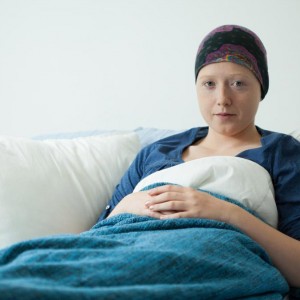
New Research Finds That Routine Breast Cancer Tests Lead to Unnecessary Mastectomies and Chemotherapy – an article from Cancer News.
This article may temper the celebrity-endorsed enthusiasm for prophylactic mastectomies for those with BRCA mutations. In addition, another study out of Duke Cancer Institute followed women with a BRCA mutation who had been diagnosed with ovarian cancer, with one group having prophylactic mastectomies, and the other group receiving routine screening (mammograms/MRIs); you can read the article here.
Results: For women diagnosed at any age with BRCA 1 and 2 gene mutations and within the first four years after ovarian cancer diagnosis, prophylactic mastectomy was associated with a negligible gain in survival. For women diagnosed at age 60 or older, regardless of time since ovarian cancer diagnosis, the gain in survival months was also negligible. For women diagnosed at age 40 to 50 with BRCA 1 and 2 mutations and at least five years after an ovarian cancer diagnosis, the procedure was associated with a survival benefit of two to five months.
Bottom line: Although prophylactic mastectomy in BRCA gene mutation carriers has shown to decrease breast cancer incidence, the data does not confirm an increase in survival.
healthyliving June 11th, 2019
Posted In: cancer care, Cancer Prevention
Tags: breast cancer, cancer, chemotherapy, mastectomy, new research, research, study
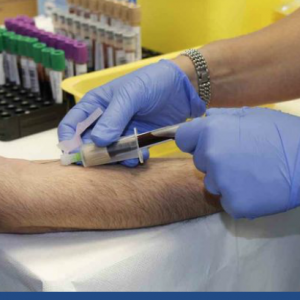
healthyliving May 14th, 2019
Posted In: cancer care, Cancer Prevention
Tags: cancer, cancer care, immunotherapy, oncolytic virus, OV, OV therapy, rigvir

“Could Diet Adjustment Prevent Aggressive Prostate Cancer?” – an article from Cancer Therapy Advisor can be accessed here.
Comments from Dr. Rosenberg on the article:
Please do not use the ketogenic diet for all cancers! Prostate cancer has a different metabolic phenotype than the classic glycolytic cancers, where the “Warburg effect” applies.
Prostate cancer tends to increase their uptake of amino acids, such as glutamine and arginine, as well as fatty acids. Prostate cancer also increases expression of the enzyme fatty acid synthase, to help synthesize long-chain fatty acids. As I mentioned in prior issues, there is significant data to suggest that statins may inhibit prostate cancer. Because of prostate cancer’s reliance on lipids, the FDG-PET scan is not an ideal imaging study.
So what kind of diet should prostate cancer patients follow? Low fat diet, but keep in mind, that as the cancer progresses and mutates, some of the lesions may become glycolytic, requiring low carbohydrate intake as well.
healthyliving January 10th, 2019
Posted In: cancer care, Cancer Prevention, Healthy Lifestyle
Tags: cancer care, diet, diet adjustment, healthy diet, prevent prostate cancer, prevention, prostate cancer
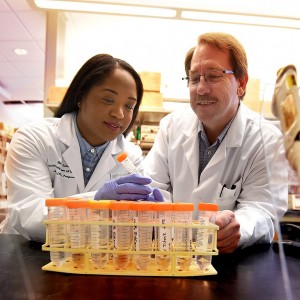
A small, daily dose of Viagra may reduce colorectal cancer risk – an article by ScienceDaily can be accessed here.
Comments from Dr. Rosenberg on the Article:
Over the last decade, researchers have elucidated the roles that impairment of cGMP signaling pathway by PDE5 activity inhibition plays in the regulation of tumor development, and progression.
PDE5 inhibition could be associated with a decreased risk of human cancer development and suppression of tumor progression in several malignancies including those of the lung, prostate, breast and colon. PDE5 inhibitors may also provide an additional anti-tumor immune response in patients affected by myeloma and head and neck squamous cell carcinomas. In addition, a synergistic effect with current chemotherapeutic regimens and monoclonal antibodies has been reported.
Although it likely will not cause harm to use PDE5 inhibitors as both a cancer preventative, as well as an adjunct to existing therapies, some questions need to be answered:
1. Which are the most effective class of PDE5 inhibitors against cancer?
2. Within each class, which drug(s) is the most effective?
3. Optimal dosage?
healthyliving December 20th, 2018
Posted In: cancer care, Cancer Prevention, Healthy Lifestyle
Tags: cancer, cancer prevention, colorectal cancer, prevention, viagra
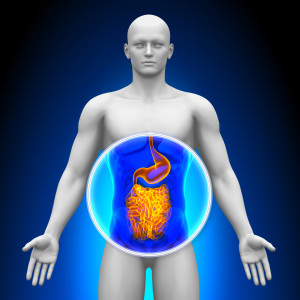
The data linking the gut microbiome continues to accumulate. In addition, the link between an animal-based diet (meat intake) and increased cancer incidence continues to strengthen. Besides
the toxins, hormones, and sulfides associated with the intake of meat, meat contains high amounts of methionine, which has been associated with cancer proliferation.
For further reading, read the following article by Amy Wallace, which appeared in United Press International and references a study published in the journal Gut.
healthyliving September 7th, 2017
Posted In: Cancer Prevention
Tags: cancer, cancer prevention, Methionine

The Dana Farber Cancer Institute recently published an article titled, Some Head and Neck Cancer Patients Benefit From Continued Checkpoint Inhibitor Treatment after Tumor Growth.
You can read the full article here.
Response Evaluation Criteria In Solid Tumors (RECIST) is a set of published rules that define when tumors in cancer patients improve (“respond”), stay the same (“stabilize”), or worsen (“progress”) during treatment. The criteria were published in February 2000 by an international collaboration including the European Organization for Research and Treatment of Cancer (EORTC), National Cancer Institute of the United States, and the National Cancer Institute of Canada Clinical Trials Group.
Today, the majority of clinical trials evaluating cancer treatments for objective response in solid tumors use RECIST. These criteria were developed and published in February 2000, and subsequently updated in 2009. This article clearly shows that these criteria cannot be used to determine the efficacy of immunotherapy. It is not uncommon for scans, as well as the clinical picture, to worsen, with immunotherapy, before we see improvement.
Bottom line: Do not decide whether the patient should stop immunotherapy, based on the CT scan or PET scan. If the patient is doing reasonably well clinically, and is able to continue immunotherapy, continuation of therapy should be considered.
~ Dr. Rosenberg
healthyliving August 29th, 2017
Posted In: Cancer Prevention
Tags: cancer, cancer prevention, Response Evaluation Criteria

Cancer patients can work to understand and make healthy lifestyle decisions during their treatment. Adaptive and integrative cancer care practices have long advocated for integrating healthy choices about things like exercise and diet into a patient’s lifestyle.
The American Cancer Society recently shared this article by Elizabeth Mendez. The findings show that exercise may in fact, make tumors less aggressive and more likely to respond to treatment.
You can access that article here. It’s a good read for anyone faced with a cancer diagnosis, or working with cancer patients.
healthyliving May 16th, 2017
Posted In: cancer care, Cancer Prevention
Tags: cancer, cancer care, cancer prevention

Over 35 years ago, the Framingham Study noted a correlation between low LDL and increased cancer incidence. Follow-up data, presented March 25, 2012, at the American College of Cardiology’s 61st annual scientific session, revealed that low LDL cholesterol, in patients with no history of taking cholesterol-lowering drugs, predates cancer risk by decades. Another study, published in BJU International, found that low blood cholesterol before treatment for renal cell carcinoma, was associated with more advanced tumor stages and cancer spread during follow-up. Also, patients with high cholesterol had a 43 percent lower risk of dying from their cancer compared with patients with low cholesterol. Finally, including patients’ cholesterol levels with traditional risk factors increased the accuracy of prognoses.
Although the mechanism has not been elucidated, a significant amount of data has confirmed that low cholesterol, specifically low LDL is associated with an increased risk for cancer, and in the case of renal cell carcinoma, more aggressive disease. The current line of thought in conventional medicine is, “there is no LDL that is too low.” There is, however, a plethora of data to refute this philosophy. My personal recommendation to physicians, is do not treat them as if they are only a cardiovascular system. Lipid metabolism plays a role in multiple organ systems, as well as in basic cellular function. If the patient has no cardiovascular disease, as determined by cardiac calcium scoring and/or CT angiogram, leave elevated LDLs alone. Their elevated LDL just may be protecting them from cancer! – ~ Dr. Rosenberg
The following article from Wiley and published in Science Daily
Low cholesterol linked with worse survival in patients with kidney cancer
People are often told to reduce their cholesterol to improve their heart health, but new research suggests that low cholesterol may increase kidney cancer patients’ risk of dying from their disease. The findings, which are published in BJU International, indicate that cholesterol testing may help doctors as they monitor and treat patients with kidney cancer.
Increasing evidence suggests that alterations in cholesterol and other lipids are associated with the development, progression, and prognosis of various cancers. To assess the situation as it relates to kidney cancer, Tobias Klatte, MD, of the Medical University of Vienna in Austria, and his colleagues analyzed total blood cholesterol levels in 867 patients with renal cell carcinoma before they underwent kidney surgery. The investigators then followed the patients for a median of 52 months.
Low blood cholesterol before treatment was associated with more advanced tumor stages and cancer spread during follow-up. Also, patients with high cholesterol had a 43 percent lower risk of dying from their cancer compared with patients with low cholesterol. Finally, including patients’ cholesterol levels with traditional risk factors increased the accuracy of prognoses.
It’s unclear how cholesterol may affect a kidney cancer patients’ prognosis. It may be that certain components of cholesterol impact the activity of cancer-related pathways to affect tumor growth and spread.
“As this was a hypothesis-generating study, our findings should be confirmed in independent datasets. If confirmed, patients with low cholesterol may be considered high-risk and may be treated or followed up more aggressively,” said Dr. Klatte.
Journal Reference:
healthyliving May 9th, 2017
Posted In: cancer care, Cancer Prevention
Tags: kidney cancer, ldl